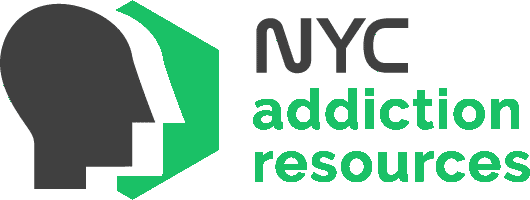
The most common risk factors for substance use disorder are heredity, early use, mental health, the type of substances used, and social and environmental factors.
There are many risk factors for developing a substance use disorder. Some of these factors are within our control, such as our environment and the people we associate with. Other risk factors, such as our genetic makeup, are out of our control.
Regardless of the cause, substance use disorders can have a profound effect on our lives, causing us to lose our jobs, our homes, and even our families.
If someone you know suffers from a substance use disorder, it is important to get them the help they need. Read on to find out what you can do.
What Are Risk Factors for Addiction?
Addiction is a serious problem that can have devastating consequences. It is important to be aware of the risk factors for addiction so that you can take steps to protect yourself and your loved ones.
There are many risk factors for addiction, including family history and genetics, age of exposure, pre-existing mental health conditions, using a rapidly addicting drug, social factors, and environmental factors.
Family history and genetic factors play a role in addiction. If you have a family member who is struggling with addiction, you may be at increased risk for developing an addiction yourself.
Age of exposure is another risk factor for addiction. The younger you are when you first start using an illicit drug or alcohol, the greater your risk of developing an addiction.
Pre-existing mental health conditions can also increase your risk of addiction. If you suffer from anxiety disorders, depression, or another mental illness, or suffered sexual abuse, you may try using drugs or alcohol to cope with your symptoms.
Using a rapidly addicting drug is another risk factor for addiction. Drugs like cocaine and methamphetamine are highly addictive and can lead to addiction very quickly.
Social factors such as peer pressure and social isolation can also contribute to addiction. If you feel like you don’t fit in or are feeling lonely, you may be more likely to try drugs or alcohol.
Environmental factors like stress and exposure to violence can also increase your risk of developing an addiction. If you live in a stressful or violent environment, you may have a higher likelihood of turning to addictive drugs or alcohol to cope with your situation.
If you are aware of the risk factors for addiction, you can take steps to protect yourself and your loved ones. If you have a family member who is struggling with addiction, get them help. If you are using drugs or alcohol, be sure to do so safely and in moderation.
If you are feeling lonely or isolated, reach out to friends or family members. And if you are living in a stressful or violent environment, try to find a safe place to stay.
Diagnosis of a Substance Use Disorder
In order to be diagnosed as having a substance use disorder, an individual must meet the criteria from the DSM5, or Diagnostic and Statistical Manual of Mental Disorders.
The DSM is published by the American Psychiatric Association and is used by mental health professionals to diagnose psychiatric conditions. It outlines specific criteria that must be met in order for a diagnosis to be made.
In order to be diagnosed with a substance use disorder, an individual must:
- Have a strong urge to use the substance
- Be unable to control their use of the substance
- Continue using the substance despite it causing problems in their life
- Develop tolerance to the substance, meaning they need more of it to get the same effect
- Experience withdrawal symptoms when they try to stop using the substance
If an individual meets these criteria, they may be diagnosed with a substance use disorder. However, it is important to note that not everyone who uses substances will develop a substance use disorder.
Treatments for SUD
There are a variety of effective treatments available for a substance or alcohol use disorder. The most effective approach depends on the individual’s unique situation, including the severity of their disorder and any co-occurring mental health conditions.
Most people with SUDs will benefit from some form of outpatient treatment, which can include individual therapy, group therapy, and/or medication management. Some people may also benefit from more intensive treatment, such as inpatient or residential treatment.
Inpatient or residential treatment can be an effective way to address more severe substance use disorders. These programs provide 24-hour care and supervision in a safe and structured environment. Included in most inpatient programs are different types of behavioral therapies, and peer group support groups, as well. They can also help people who have relapsed after other attempts at treatment.
In addition to these treatment programs, there are also aftercare and continuing care programs. Aftercare programs help people transition from more intensive treatment back to everyday life.
They can include things like weekly group meetings or individual therapy sessions. Continuing care programs provide long-term support for people who are in recovery from substance use disorders.
If you’re concerned about a loved one with a substance use disorder, it’s important to seek help as soon as possible. The sooner treatment is started, the better the chances for recovery.
There are many resources available to help you find the right treatment for your loved one. To learn more, please keep reading.
How to Find Treatment
As someone who wants to help a loved one overcome a substance use disorder, you may be feeling a range of emotions, including helplessness, frustration, and anger. You may even suffer from panic attacks or intense fear. It is important to remember that you are not alone, and there are people and resources available to help you both.
At NYC Addiction Resources, we understand how difficult it can be to watch a loved one struggle with addiction. We also know that getting them the help they need is essential to their recovery.
Our staff is available 24/7 to help you find the resources and treatment options that are right for your loved one. We can also provide support and guidance through every step of the process, and we treat every patient with dignity and respect.
We invite you to visit our site to learn more or give us a call at 718-208-4202 to speak with someone who can help.


